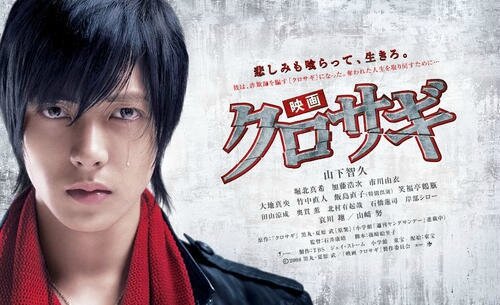
Instead the film focuses on only one side, the relationship between Kurosaki and Katsuragi. Tsurara and Kurosaki are contrasts, with Katsuragi and Detective Kashima Masaru as the extreme examples on both sides. The series was built around the contrast of vigilante justice or revenge vs the legal system as the arbiter of justice. She is resigned to the role of observer and has no bearing on the outcome of the plot.

Indeed, Maki Horikita as Tsurara Yoshikawa is extremely underused in this film. In the movie he is back to treating her like a nuisance. For example, Kurosaki calls Yoshikawa "Yoshida" when in the final episode he has recognizes her respectfully and stops deliberately getting her name wrong. Indeed, it seems at times as if Episode 11 of the series has not even taken place.


We see no discussion of Tsurara's incentive to make a choice upon whether to change her vision of justice nor do we see Kurosaki evolving in his senses. Instead of resolving the thematic content of the television series, which is the nature and role of justice, Eiga: Kurosagi takes several steps backwards.


 0 kommentar(er)
0 kommentar(er)
